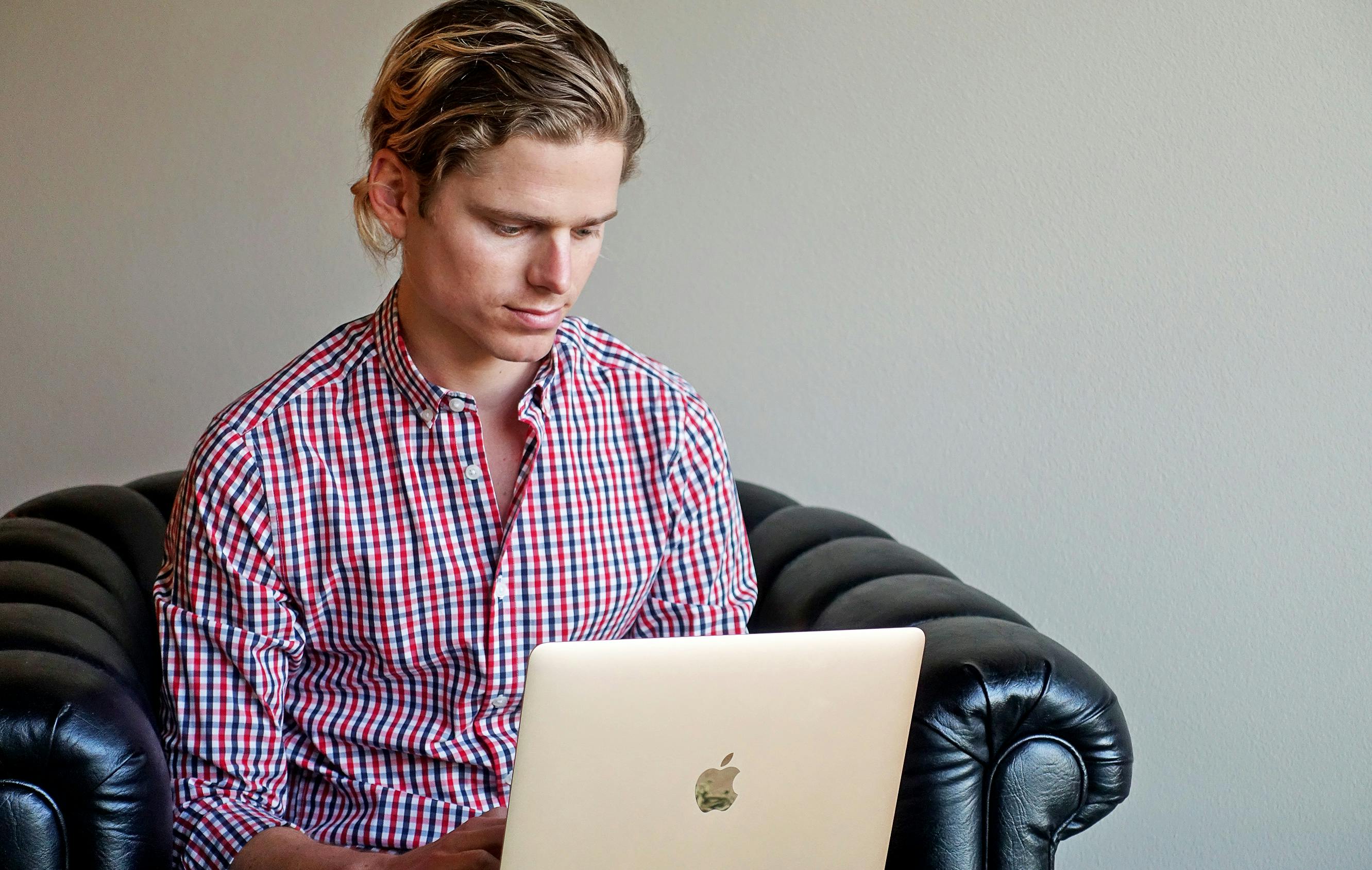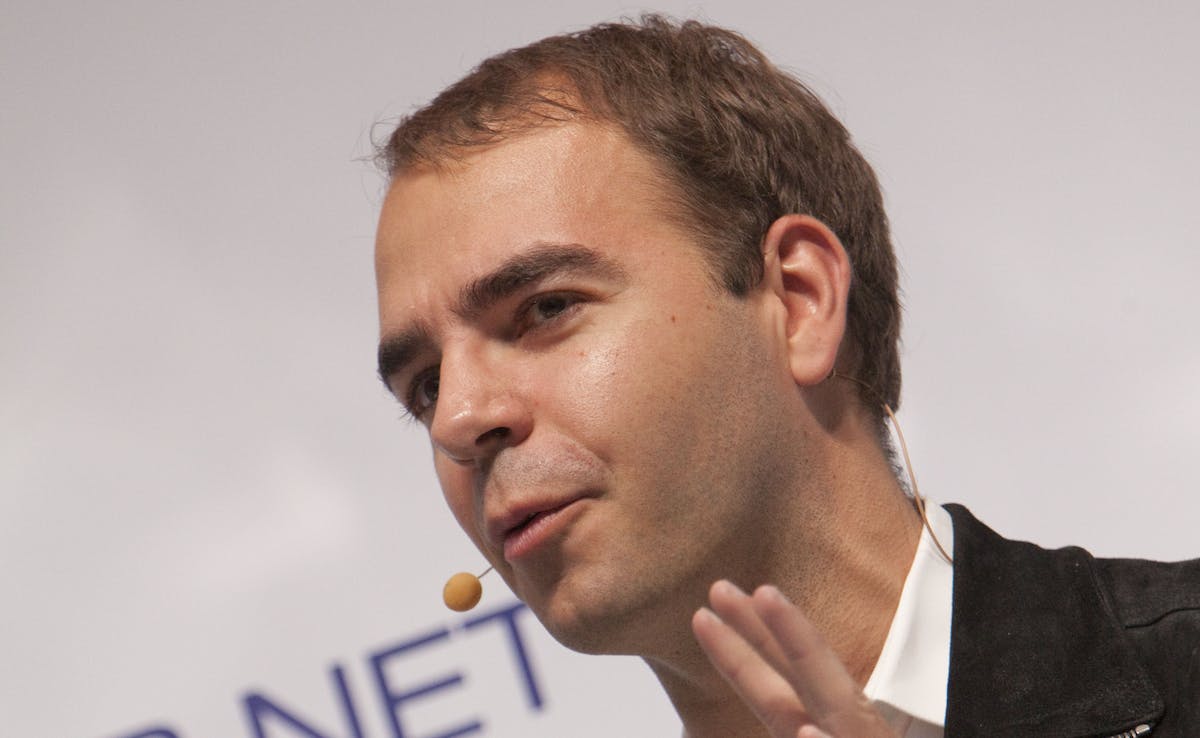Do one thing well – An interview with Mike Williams
The founder of Studiotime shares how he built a profitable marketplace business by bootstrapping.
Published on
Last updated on

The founder of Studiotime built a profitable marketplace business by bootstrapping. He encourages marketplace founders to share a really simple message with their users. For our tips on growing your business, check out the marketplace marketing & growth articles library.
Mike Williams had had the idea of Studiotime in his head for a while: "There must be a better way for artists to book record studio time". One day, he decided to tackle this problem. He would skip his dinner plans and build a minimum viable platform instead.
After searching around, Williams found Sharetribe. To his surprise, he was able to create his "Airbnb for record studios" in a matter of hours. He describes the process in a blog post about Studiotime's launch:
– Much to my surprise, I completed the site in a few hours. I even had the social hooks built-in that I would use to convince artists and studios to sign up. I tested everything and marked this project as done at around 1 am.
The same week, he purchased the domain studiotime.io and submitted the site to Product Hunt. In a matter of hours, more than 1,000 users signed up to his site. What started as a passion project was about to turn into a real business.
Like Storefront, Studiotime has focused on growing its business city by city. Since every city has a finite number of record studios, their customer liquidity metrics are simple. Once Studiotime has the majority of all the record studios in a given city on their platform, they consider themselves having achieved liquidity since most artists will be able to find a studio for their needs.
– If people keep asking us "why isn't this or this studio listed on your site yet?", that's how we know we're not quite there yet. On the other hand, we don't even need to have every single LA studio on board—that would be oversupply.
Studiotime has currently achieved customer liquidity in Los Angeles and New York. Williams expects they will conquer more cities in the coming months.
Provider liquidity—making sure each studio gets enough bookings through the site—is more difficult, but Williams says they are getting there.
– We have a constant flow of artists coming in, and the biggest studios are already making five-figure sums in bookings per month through our site.
Luring in demand is more challenging than acquiring supply, which is why Studiotime has needed to get creative.
– We use social channels a lot. Instagram works really well for us—we get 10-15 direct messages from artists every day.
Studiotime has also been very successful in getting media attention. They have been featured in most major industry publications. Williams says each marketplace founder should know the key players in their target market really well.
– Get to know your potential users, potential partners, industry media, competitors, influencers, and so on. This is how word spreads. Then, when you're releasing something new, tag the influencers, and they will spread the word.
Like so many other marketplaces, Studiotime has also turned to Craigslist to reach their target audience.
– We post instruments for sale because we know that the target audience is musicians who are often looking for a space to record their album as well. It's a great way to get in touch with people.
Lots of marketplaces—and other startups—try to grow their reach through social media, but few of them succeed. Studiotime has succeeded. Williams thinks it's because of their clear messaging.
– We have a really specific group of users who want a very specific thing. That means we're able to satisfy their needs well, and they like that. We can also do things that matter only to this particular audience, like taking people through the insides of record studios via our Instagram feed. That's not something you can find on YouTube.
In the early stages of Studiotime, Williams was full of ideas on directions the team could take. Perhaps they could build a community for the artists, brand pages, and so on. After some trial and error, he realized that what they need to do is to focus on one thing only, and do it really well: helping artists book studio time.
– I think spreading their focus is a super common mistake early-stage marketplace founders make. You get all these ideas and see lots of potential in so many different directions. There's always someone who says, "Hey, you're renting bikes, why don't you also do skateboards?". But the thing is, you can't really do it all. Instead, pick one thing and focus on becoming really good at that. You can always expand later.
"I think being hyper-focused is the key to success for modern marketplaces."
Williams has noticed that it really helps to offer a more personal touch to users, especially in the early days of a marketplace.
– I think Instagram converts really well because you get to chat with people in real-time and get to know them a bit. You create a relationship with your users.
As a marketplace grows, offering everyone a personal touch becomes more difficult. Studiotime recently tried to scale the personal approach by using Facebook's new messenger bot platform. They launched the Studiotime concierge in September 2016.
– It only took a few hours to build, and I think it offers a really nice personal experience. You can simply ask questions from the bot and it answers. Right now, you can use the bot to search for suitable studios, but in the future, you'll hopefully be able to also book through it.
As marketplace expert and investor Mathias Ockenfels notes, investors are starting to look for marketplace businesses that already generate serious revenue. Williams and his team decided to bootstrap instead of trying to get funding early on.
Thanks to Sharetribe, they didn't need their own development team, which allowed them to reduce costs. They were also able to launch quickly, which allowed them to start the learning process right away. This was vital, as they soon discovered that the initial business model for the marketplace they had in mind was not really working.
– We originally thought our revenue would come from commissions from bookings. However, we soon discovered it was tricky to get the studios to adapt their invoicing practices to our booking system.
They switched to a simple subscription model: studios pay a monthly fee to have access to the platform. This strategy proved successful. Today, Studiotime is profitable, with monthly revenues in the five figures. They are in a good financial position and don't plan on raising more in the future. Instead, they are going to focus on their core business.
– We'll be expanding to new cities, offering more tools to the studios, and helping them grow their market. It's as simple as that.
You might also like...

How to start with branding your marketplace
Use the brand strategy canvas to find your unique marketplace positioning.

“Make your marketplace unit economics work,” says Fabrice Grinda
When one of the world’s most successful angel investors talks marketplaces, we listen.

The science of customer loyalty, and how to leverage it for your marketplace
Learn three science-backed tactics for increasing customer loyalty on your marketplace. Written by Chatra co-founder and CEO Yaakov Karda.
Start your 14-day free trial
Create a marketplace today!
- Launch quickly, without coding
- Extend infinitely
- Scale to any size
No credit card required
